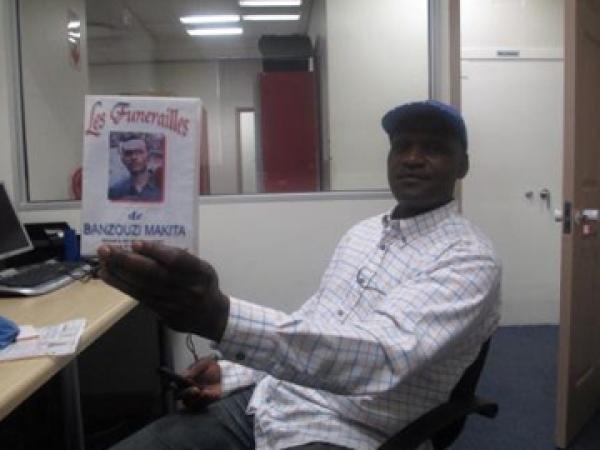Refugee facing arrest in Congo ordered to leave SA

A 47 year old Congo-Brazzaville man has been told to leave South Africa though there is a search warrant (avis de recherche) out for him in his own country.
Benjamin Makita’s application was rejected by the Cape Town Refugee Reception Office (CTRRO) on 21 January 2014. He has been told to leave the country within 30 days.
When he applied for an asylum document at CTRRO at Airport Industria in 2006, Makita asked a fellow Congolese to fill in the application form for him. The man told him he also struggled to write English and suggested Makita shorten his story. Important details were left out and his asylum application was finally rejected in January 2014.
On 11 February 2014, Makita received a letter from CTRRO saying, “The standing Committee has upheld the decision of the Refugee Status Determination Officer of 21 October 2008. Your application has been finally rejected as Manifestly Unfounded.”
Makita’s claim does not fit the requirements under the Refugee Act 130 of 1998.
But there is a search warrant out for him in the Republic of Congo, for making “threatening” remarks about the presidency.
Makita, who has been working as a security guard in Cape Town, has a letter from a magistrate at the Brazzaville district court dated 20 August 2005.
Makita claims he ran away from his country of birth to South Africa in 2006 because a politician from his country wanted to kill him.
He showed GroundUp a DVD of his son’s funeral, alleging the same politician had killed his parents and his son Banzouzi, as revenge for his escape. Banzouzi was 20 years old when he was severely beaten in 2009. He was in and out of hospital and died seven months later.
Another son, Banzouzi’s twin, died later, Makita said, from “stress and difficult living conditions since I was not available to provide for him”.
He said contacts in Congo had told him he was still in danger and he should not set foot there until the regime had changed.
According to Makita, his problems arose after his wife’s death. He was dating the politician’s daughter in 1999. She fell pregnant. Her father forced her to have an abortion and she died, he claims. Then, he explains, her father ordered Makita to be thrown in jail. Makita says his parents bribed some government officials who organised his release.
“I am too stressed. I cannot think properly and I have lost my appetite. The time I was given by the CTRRO is too short to uproot myself. My other worry is how I should send my furniture to Congo. It is expensive. A one way ticket to go back will cost me R9,000. I also need another country to relocate to since it is not yet safe for me to go back to Congo.”
He misses his 12-year-old girl and three other girls and is worried about how he will continue to send money home to them.
Makita, who hopes the University of Cape Town (UCT) law clinic will be able to help him, says CTRRO should finalise asylum seekers’ applications quicker to give them time to make other plans if their applications are rejected.
Repeated attempts to get comment from the Department of Home Affairs were unsuccessful.
Next: Teachers face disciplinary charges for teaching in mother-tongue
Previous: Back to the land: an interview with Constance Mogale

This article is licensed under a Creative Commons Attribution-NoDerivatives 4.0 International License.


